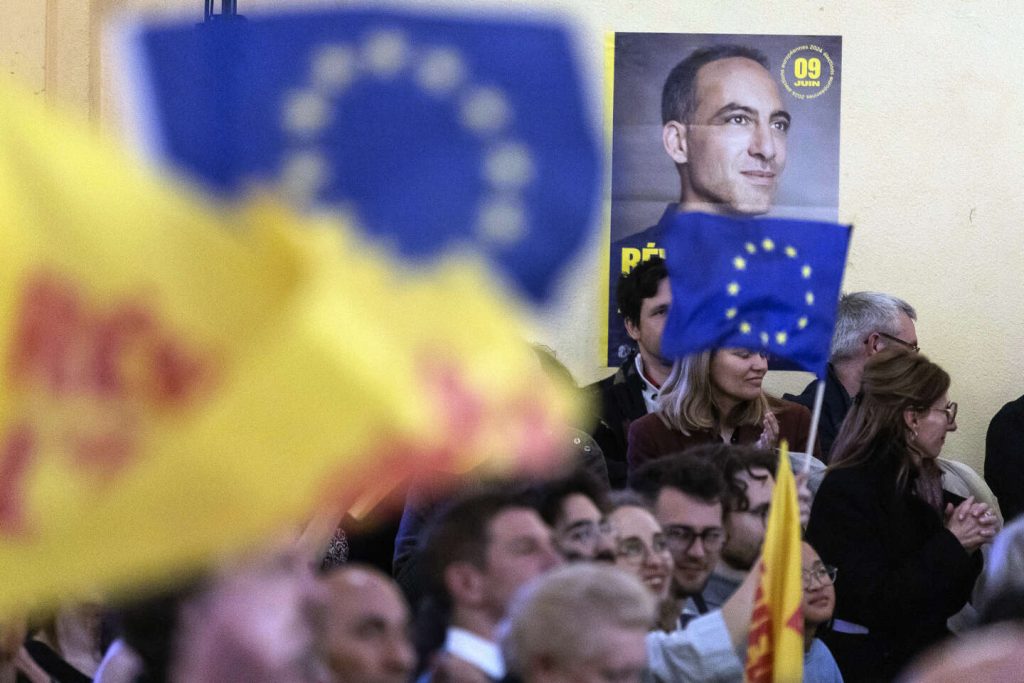During a meeting of Raphaël Glucksmann, the head of the PS-Place publique list in the European elections, in Strasbourg on April 24, 2024, he has seen a rise in his popularity in the polls. Starting at 10.5% of voting intentions in November 2023, he has now reached 14% in April 2024, only three points behind the Macronist candidate. In November 2023, the list of Glucksmann was just edging out the Europe Ecologie-Les Verts (EELV) list by one point and was three points ahead of La France insoumise (LFI). However, the advantage was minimal. Currently, his list is seeing double the support compared to its rivals.
Although a poll is not an electoral result, it still indicates movement within the electorate. A campaign like the European elections is subject to sudden shifts and changes in the final days. The movement in Glucksmann’s favor can be partially attributed to the weakness of his competitors. While the left as a whole is not seeing a significant increase in support, Glucksmann’s list is drawing voters who had previously supported Emmanuel Macron or Nathalie Loiseau. This suggests that there are other factors at play, such as the decline in support for LFI and the Greens, which have enabled Glucksmann’s list to gain traction.
One clear reason for Glucksmann’s rise in popularity is the internal struggles within LFI. Jean-Luc Mélenchon’s dominant presence and focus on the upcoming presidential election has overshadowed his candidate, Manon Aubry. Additionally, there has been a shift in the overall mood of the country, with fewer people expressing anger and more people feeling discontent. Even among LFI supporters, the level of anger has decreased. This indicates that Mélenchon’s strategy of radicalization may be out of touch with the current sentiment of the electorate.
While Glucksmann’s prospects seem to be improving, it is important to note that there is still time before the election on June 9th, and anything can happen in the coming weeks. The fact that Glucksmann’s list is gaining momentum amidst a seemingly lackluster campaign suggests that there are underlying factors at play. As the political landscape continues to evolve, it will be interesting to see how Glucksmann’s rise in popularity impacts the overall outcome of the European elections.
In conclusion, the rise of Raphaël Glucksmann in the polls reflects a larger trend of shifting political dynamics in France. His ability to draw support from disaffected voters of other parties, as well as capitalize on the weaknesses of his competitors, has positioned him as a prominent player in the upcoming European elections. However, the unpredictability of politics means that his current standing could change in the remaining weeks leading up to the election day.


